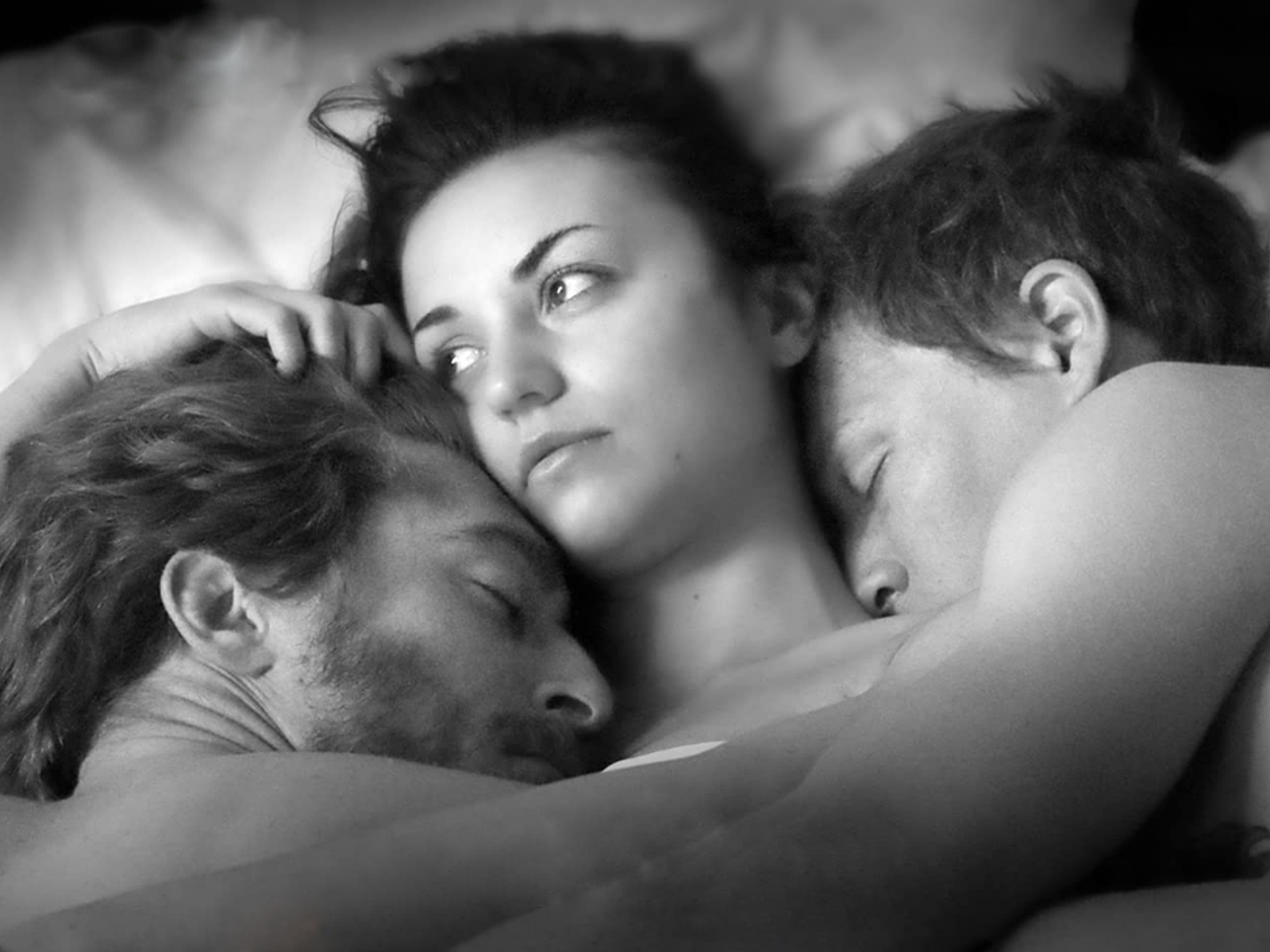
- Golden Globe Awards
Show Me What You Got (USA): Interview with Svetlana Cvetko
Show Me What You Got, Svetlana Cvetko’s directorial debut, tells the story of three late twentysomethings and their playful forming of a ménage à trois, in a sensual scenario reminiscent of the French New Wave, like Jules et Jim. Filmed in black-and-white in Los Angeles (and partly in Italy), each character is seen at a moment of transition. Fun-loving Marcello (Mattia Minasi) is trying to come out from under the thumb of his Italian soap star father, soulful French-Iranian actor Nassim (Neyssan Falahi), and artist Christine (Cristina Rambaldi) are grieving the death of her grandfather. The frolicsome trio finds joy exploring their sexuality, joining political protests, making art, and falling deeper into their unconventional relationship, until Marcello must return to Italy and their experience there threatens the delicate balance of their relationship. Show Me What You Got – also co-written by Cvetko – won multiple awards, including the Grand Jury Prize at its world premiere at the Taormina Film Festival in Italy, in 2019. We spoke to the Serbian born director Svetlana Cvetko, who is also a highly respected cinematographer of documentaries.
Why did you want to tell this story?
I made this film because I wanted to tell the story of three young millennials who challenge and question the social norms surrounding love and expand acceptance beyond its current boundaries – acceptance of who we are and who we love. In addition, outside of the love story itself, I wanted to represent the kind of Los Angeles that I live in – a city of immigrants, of people who speak their native language with their family over the phone, and English with all of their friends. They are people who feel stuck between two worlds, the traditions and expectations of their homeland, and the vibrancy and modern thinking of a place like Los Angeles. And there’s a certain isolation and loneliness to that, but then your friendships become more important than your family and where you come from. Or do they?
Who’s Christine, the film’s main character?
Christine is a strong, empowered woman who is comfortable in her own skin. She knows how to say no in her relationships, but she’s also secure enough to know when to say yes as well. The film touches on the themes of sexual equality, female empowerment, sex positivism, polyamory, and questioning.
Can you tell us, briefly, about your own immigrant story in the U.S.?
I came to America with my family. I worked my way up, starting as a photo assistant in San Francisco on fashion shoots and then as a still photographer, all while also taking film classes and especially cinematography. I slowly transitioned from still photography to cinematography. I shot my first short film for a student from San Francisco State, and the film went to Sundance and the Berlinale and it had a great success. In 2011 I shot my first feature-length documentary, and that was Inside Job, which won an Academy Award, and that launched my professional career as a DP. I was also experimenting as a director, making shorts and commercials, until I was lucky enough to get the support from my producers to make Show Me What You Got.
Is it difficult performing as both director and DP, as you did for Show Me What You Got?
A challenge for sure, but because I was the operator as well, it became a very intimate experience for me as the director to be physically so close to the actors and be able to simply lower the camera, suggest an adjustment, and continue filming. It was important for me that the camera feel almost as another character experiencing everything with the actors, but the camera also has an omnipotent perspective and steps back at some moments, creating a sense of living realism where not only the performances but also the environments seep into our awareness and emotions.
Tell us about filming the Italian part of the movie.
It was definitely influenced by Cristina Rambaldi, who plays Christine. She’s the granddaughter of Carlo Rambaldi, but she, in her own right, is this incredible, bright, luminous, strong young woman who comes from the Puglia region, and I always knew that I wanted to tell a story with actors from different countries. A film that transcends borders, with an international feel. A film that blurs the line between fiction and reality. I loved shooting in Southern Italy, and I fell in love with small towns like Noce, Putignano and Monopoli, where we filmed the majority of the film’s Italian parts. Places with fantastic light: that’s a draw for any photographer, and a beautiful coastline and wonderful, friendly people.
What would like to communicate to your audience with this film?
Seize the opportunities you have in front of you and live your life to the fullest. That sense fills the screen for me, because during the filming I lost my father, and during editing, my producer lost his father. This spirit of life ending and life continuing is the soul of the film. We all need to take chances in our life, and do so with all our heart.

